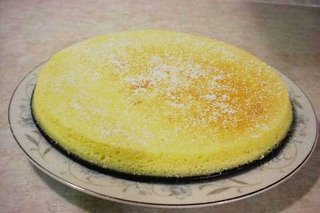
It's no secret that in addition to being a brilliant poet and writer, Sylvia Plath was also an accomplished cook and baker. At work in her kitchen, Sylvia sought solace and inspiration from her cookbooks and comfort from her culinary creations. The Joy of Cooking was one of her most cherished books. Having read it religiously, she was more than familiar with its contents. Although I am ashamed to admit that given my continually growing collection of vintage cookbooks, I still do not own a copy of The Joy of Cooking. This truly shames me. In my somewhat weak defense, however, I often borrow a copy from my local public library.
With the month of May quickly approaching, my melancholy mood continues and I, too, am finding a certain peace in my kitchen. Like Sylvia, I know about loss and appreciation for things left behind. I know about being lost and found, while living long and coping with existential frustration. And I know there is sacred and therapeutic consolation to be found in cooking. This evening, drinking strong coffee while devouring Sylvia's prophetic words, I resolved to bake her beloved, Tomato Soup Cake, having read that she found much comfort in this recipe. But after inspecting the ingredients required, I discovered that I was without a can of condensed tomato soup. I cannot say this pained me, for although I've always been an admirer of her, this cake containing tomato soup, did not seem terribly appealing to me. I did not, however, declare absolute rejection of this recipe, because I found it to be curiously intriguing. Therefore, I can write with confidence, that someday (perhaps sooner, rather than later) I will end up eating a cake filled with tomato soup.
It has been widely reported that Sylvia was baking a Lemon Pudding Cake while writing, "Lady Lazarus," one of my favorite poems from her. Unlike the tomato cake, lemony cake really appeals to me. However, the 1997 reprinted edition of The Joy of Cooking does not seem to include a listing in its recipe index for a Lemon Pudding Cake, but it does contain a recipe for Lemon Sponge Custard. According to the recipe, while cooking, this dessert divides itself into layers of custard and sponge cake. Two distinct layers completing one beautiful whole: most appropriate and even more intriguing to me than the tomato based recipe.
Empowered by more coffee, I attempted to bake this rather delicate dessert. Surprisingly, it was not at all difficult to assemble and it baked beautifully. And mysteriously (or miraculously), the intriguing little dessert indeed transformed itself into a multi-layered treat, with yummy custard hidden beneath a yummy layer of spongy cake. As soon as the first bite melted in my mouth, I immediately and completely understood how Sylvia found joy in cooking.
Until we meet for coffee,
JulieLemon Sponge Custard
(Recipe courtesy of The Joy of Cooking, 1997 edition.)
(Recipe courtesy of The Joy of Cooking, 1997 edition.)
Ingredients:
2 tablespoons unsalted butter; softened
2/3 cups sugar
1/8 teaspoon salt
3 large egg yolks
3 tablespoons all-purpose flour
1/4 cup strained fresh lemon juice
2-3 teaspoons grated lemon zest
1 cup whole milk
4 large egg whites at room temperature
Preheat oven to 325 degrees F. Lightly butter a 9"x2" round pan or six 6-ounce custard cups or ramekins. In a bowl using the back of a wooden spoon combine and mash together butter, sugar and salt until crumbly. Beat in egg yolks. Add flour and mix until smooth. Gradually beat in lemon juice and zest. Stir in milk. In another bowl, beat egg whites on medium-high speed until stiff but still moist (they will look a little curdly, but don't worry). Gently whisk the whites into the milk mixture, blending just until no large lumps of whites remain. Ladle (do not pour) the batter into the prepared pan or cups; it is okay for it to reach the top. Bake in a water bath until a knife inserted in the center comes out nearly clean, 30 to 40 minutes for both small and large custards. Let stand for 10 minutes in the water bath. During the baking, the batter will divide into a layer of quivery lemon custard on the bottom and a light, spongy cake on top. Serve warm, at room temperature or chilled, in the mold or turned out. Yield: 6 Servings
(Mine is generously dusted with confectioner's sugar.)
No comments:
Post a Comment